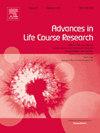Parental and peer influence on STEM career persistence: From higher education to first job
IF 3.4
2区 社会学
Q1 Medicine
引用次数: 0
Abstract
This article investigates social influences that drive gender-specific differences in the degree of persistence individuals exhibit in regard to pursuing science, mathematics, engineering and technology (STEM), both as a field of study and as an occupation. It covers individuals’ careers from entry into higher education to entry into the labor market. Following a life course perspective, I ask the following questions: (1) How stable are preferences regarding STEM subjects and occupations throughout young adulthood? (2) Are significant social ties, such as relations with friends and family members, factors that affect individuals’ persistence in pursuing a STEM career throughout higher education and at entry into the labor market? Based on longitudinal data from the student cohort of the German National Educational Panel Study (NEPS), Starting Cohort 5 (SC5), I find that mothers who have a STEM occupation encourage their daughters to choose a STEM career when the latter enter higher education, but they do not encourage them to choose STEM studies or to choose a STEM occupation when they enter the labor market. Conversely, social factors contribute stronger to the persistence of men: fathers who have a STEM occupation promote sons choosing to pursue a STEM field, and to persist in such a field. Also, I find that support from friends and parents is especially important for men’s persistence in pursuing STEM subjects during higher education.
父母和同伴对 STEM 职业坚持的影响:从高等教育到第一份工作
本文研究了在科学、数学、工程和技术(STEM)作为一个研究领域和一种职业时,促使个人在坚持程度上表现出性别差异的社会影响因素。它涵盖了个人从进入高等教育到进入劳动力市场的职业生涯。从生命历程的角度出发,我提出了以下问题:(1) 在整个青年期,对 STEM 学科和职业的偏好有多稳定?(2) 重要的社会关系,如与朋友和家人的关系,是否是影响个人在整个高等教育阶段和进入劳动力市场时坚持从事 STEM 职业的因素?基于德国国家教育面板研究(NEPS)学生队列 "起始队列 5"(SC5)的纵向数据,我发现从事 STEM 职业的母亲鼓励女儿在进入高等教育阶段时选择 STEM 职业,但她们并不鼓励女儿选择 STEM 学习,也不鼓励她们在进入劳动力市场时选择 STEM 职业。与此相反,社会因素对男性的持久性贡献更大:从事科学、技术、工程和数学职业的父亲会促进儿子选择科学、技术、工程和数学领域,并在这一领域坚持下去。此外,我还发现朋友和父母的支持对男性在高等教育期间坚持攻读 STEM 学科尤为重要。
本文章由计算机程序翻译,如有差异,请以英文原文为准。
求助全文
约1分钟内获得全文
求助全文
来源期刊

Advances in Life Course Research
SOCIAL SCIENCES, INTERDISCIPLINARY-
CiteScore
6.10
自引率
2.90%
发文量
41
期刊介绍:
Advances in Life Course Research publishes articles dealing with various aspects of the human life course. Seeing life course research as an essentially interdisciplinary field of study, it invites and welcomes contributions from anthropology, biosocial science, demography, epidemiology and statistics, gerontology, economics, management and organisation science, policy studies, psychology, research methodology and sociology. Original empirical analyses, theoretical contributions, methodological studies and reviews accessible to a broad set of readers are welcome.
 求助内容:
求助内容: 应助结果提醒方式:
应助结果提醒方式:


